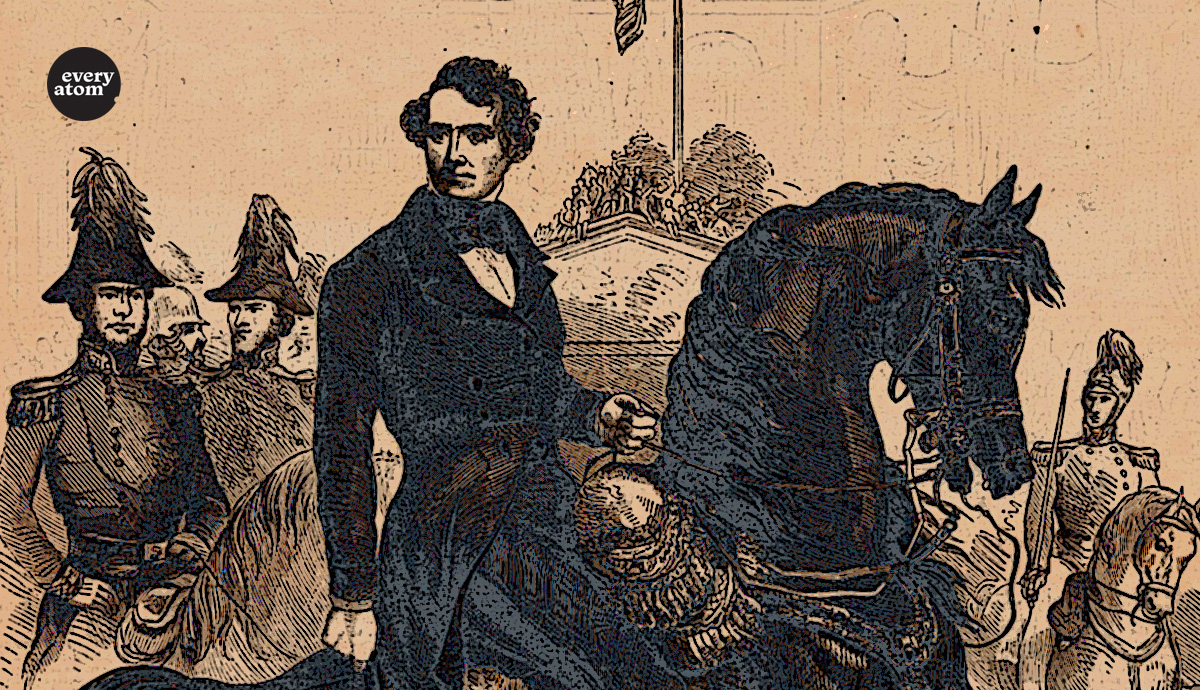Every Atom | No. 188
Introduction to Every Atom by project curator Brian Clements

President Franklin Pierce, handsome, alcoholic advocate of slavery, suffering from depression over the loss of three sons before the age of 12, presided in 1855 when the First Edition was published. During his tenure, the Kansas-Nebraska Act set the stage for slavery to increase its range. Unpopular and unreelectable, he died of cirrhosis twelve years after leaving office and is remembered as an advocate of Jefferson Davis, though he stopped short of later sanctioning secession. Many view him as a traitor.
What constitutes one kind of failure is not living up to the demands of one’s time, not meeting the moment with enough humility and insight to learn from it. Many presidents are guilty, as are many poets, creating false kingdoms based upon an exclusivity shaped by fear or ignorance or a false and narrow superiority. Our history is one of exclusions, and it is the poet/ leader/seer who steps forth and is later remembered. Whitman and the president he celebrated in poems subsequent to the 1855 Leaves of Grass have become enshrined for their vision, their generosity, their “contain[-ing of and embracing of] multitudes.”
We recall Whitman and his president, face drawn from worry and fatigue, prematurely old and haunted by the destruction of war and lost sons. Later, of course, Whitman eulogized his president in “When Lilacs Last in the Dooryard Bloomed.” It seems that deep humanity and deep feeling are always tinctured by loss. Counting the dead, all the while attentive to the living, we become ourselves in the most resonant of ways. And If we are wise, our failures enrich us.
Those who are unable to pay attention, who succumb to pettiness and bellicosity, trading in grievance and distorting the truth out of their inability to see the Whole, must be excluded from Whitman’s blessing of failure. Both Whitman and his quieter contemporary, Emily Dickinson, were synthesizers, their inclusivity both material and spiritual. In short, they “get it.”
Sadly, we are assessing Whitman’s legacy in an era of chaos and exhaustion, as our president, a totalizer for what is worst and most untrue, ugly, and vapid, creates a crisis as serious as any we’ve experienced. Because he is incapable of learning, his is not a laudable failure. There is no cohesive self to confront, not even a trickle of empathy to sweeten the brew. When Trump chooses to read a poem, it is about an invading snake that tricks those around him to enter their lives and cause danger. While he equates this snake with immigrants (at the same time calling for a snake-filled moat to dissuade them), he is not aware of his own reptilian nature, his own cold skin. Whitman, poet of the body, would see Trump as an aberration.
I wonder whether we can learn from evil, if its current trifling, abysmal incarnation will stir more Whitmans, willing to seek a path beyond the current darkness and reseed our soil. A Whitman poetics would include all those whom Trump slanders and wishes to exile or ban at our borders. Maybe a “Song of Our Selves” can be sung by the many. Let us hope it is soon.
Recommended
Nor’easter
Post-Op Appointment With My Father
Cedar Valley Youth Poet Laureate | Fall 2024 Workshop






